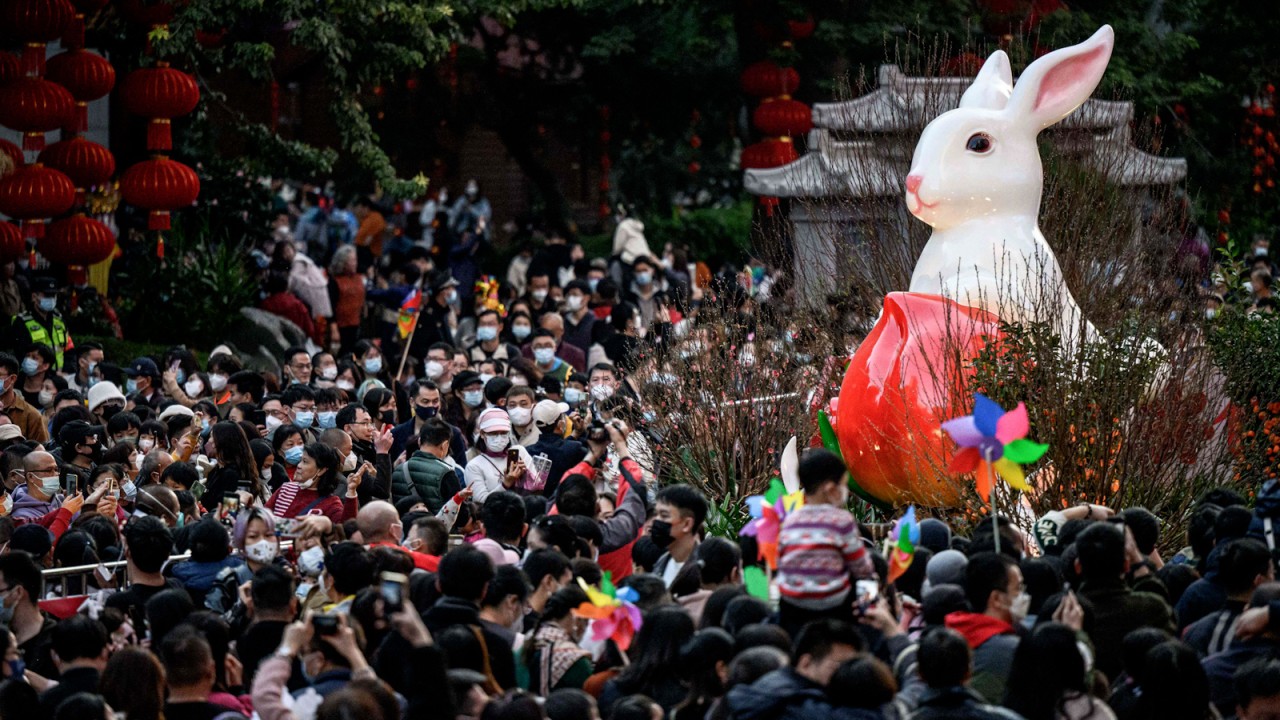
Explainer | China economy: 5 issues, from housing to population, that are likely to feature in Xi Jinping’s fact-finding campaign
- Government officials have been told to carry out field research and gauge public opinion to identify weak links in China’s development agenda
- Economic issues will feature prominently, including challenges to domestic demand, tech self-reliance, private and foreign investors, and jobs
President Xi Jinping has launched an on-the-ground campaign to identify obstacles and risks threatening China’s development.
Economic issues dominate Beijing’s work agenda, with the government eager to shore up the headline growth rate and maintain social stability in the face of rising internal and external challenges. Some observers say Xi is taking a page out of the old party’s playbook as he seeks to strengthen control and connect with the masses.
The investigations will shed light on areas such as domestic demand, tech self-reliance, support for private and foreign investors, rural revitalisation, grain security, supply chains, common prosperity, jobs, housing, elderly care, and financial de-risking.
It remains unclear how far authorities will push and to what extent they can solve problems. But here are some of the long-standing economic issues likely to feature in the fact-finding mission.
1. Private business confidence
China’s private entrepreneurs share similar worries with their Western peers, such as financing difficulties and high fundraising costs, but they are particularly burdened in their competition with state-owned enterprises, which dominate the country’s upstream resources, finance, telecoms and many other industries.
Their lack of confidence is one of the most prominent issues facing the economy, despite pledges from the government of “unwavering support”.
There is also long-standing bias against private businesses, who are often criticised online as “bloodsucking” capitalists. Some lawmakers and academics continue to call for the elimination of private ownership.
China’s ‘disappearing market confidence’ presents major test for Beijing
Entrepreneurs are waiting for the government to turn promises into action. Some speculate that Beijing’s pledges are a short-term tactic to stabilise the economy and jobs.
“None of my entrepreneur friends have a high-quality life. They work hard day and night,” Yu Minhong, the founder of New Oriental Education, which was hit by the regulatory action, told the Yabuli China Entrepreneurs Forum on Friday.
“I hope the government can consider placing private enterprises at the core of the country’s development.”
2. Foreign investor concerns
Billionaire investor Mark Mobius’s complaint about China’s capital controls during an interview with Fox Business in early March reflected long-standing frustrations among foreign investors.
But there are other issues. Rising costs, Covid lockdowns and decoupling pressure in the West have forced some foreign-funded manufacturers to relocate operations or make China-Plus-One contingency plans.
“Shanghai has a window of opportunity to rebuild the trust eroded over the past three years, particularly following the city’s spring 2022 lockdown,” Bettina Schön-Behanzin, vice-president of the European Chamber, said in the report.
3. Housing
The debt crisis that has engulfed a number of developers, including China Evergrande – one of the country’s largest by sales – has turned into one of the most pressing issues for the national economy in recent years.
Housing accounts for most household wealth and liabilities and indirectly affects marriage, childbirth and technology innovation.
The property market, along with construction, raw materials and home appliances, contributes to more than a quarter of the national gross domestic product. The sector’s potential collapse has generated worries about systemic financial risk.
Who will take on China’s biggest economic challenges?
The immediate problem is unfinished residential projects, which affects tens of thousands of families and has triggered rare protests in many cities.
Housing prices, especially in big cities, are unaffordable for most people. The government has been blamed because it has full control over buying, mortgage and land policies. There are growing calls for the government to provide more affordable housing or long-term rental flats for low-income families.
Meanwhile, property tax, which is vital to local government income, continues to haunt homeowners.
4. Jobs and income
The official jobless rate for youth hit a record high of almost 20 per cent last summer and was still hovering 18.1 per cent in February. A record number of 11.58 million college graduates will enter the job market this year, adding even more pressure.
Meanwhile, many migrant workers in export-oriented coastal regions may encounter trouble as overseas orders fall.
China is estimated to have around 200 million flexible jobs, in professions like delivery services, online shop owners or streamers. These jobs are generally underpaid and unstable, while workers’ rights are less protected.
For most of China’s salary earners, job insecurity remains a big challenge. Similar to Silicon Valley companies, China’s tech firms have been downsizing their workforce in anticipation of slowing revenue.
The job market prospect has a knock-on effect on income outlook and household consumption.
Chinese academics are debating a household balance sheet recession amid rising precautionary savings and less willingness to spend on durables and properties.
5. China’s population problem
Protests by pensioners against lower medical subsidies in Wuhan, Dalian and other cities have stoked concerns about social unrest.
This indicates a looming crisis for the national pension system. The Chinese Academy of Social Sciences, a Beijing-based governmental think tank, warned in 2019 that the state pension pool could dry up by 2035 given the dwindling population and social security contributions.
The academy also called for a centralised approach as many local governments are short on revenue to maintain welfare. Previously, many scholars suggested more central government input and greater transfers of state assets into the pension pool.
Postponing China’s retirement age, which is currently 60 years old for male workers and 50 or 55 for female workers, is already in the pipeline. However, Premier Li said at his press conference that the government will progress with caution.


